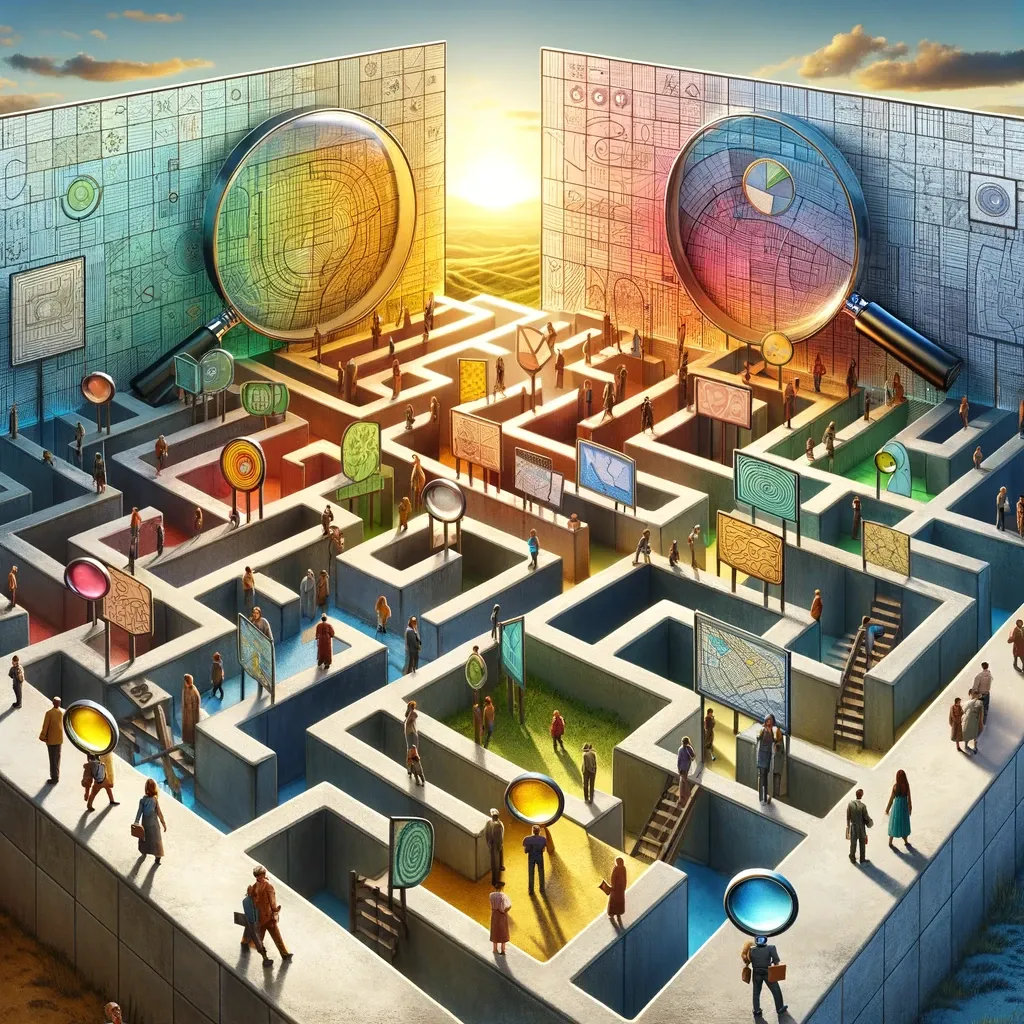The Hidden Power of Perspectives: Unveiling Our Mental Narratives

This week, I found myself navigating through a maze of preconceived notions and unexpected revelations that challenged my understanding of perspective, criticism, and self-awareness. It’s a journey that I believe holds a mirror up to the stories we tell ourselves and the narratives we construct about others. This exploration isn't just a reflection but a lesson in curiosity, bias-checking, and the power of perspectives.
In our lives, we often construct stories in our heads that are more fiction than fact. These stories, woven from threads of assumptions, fears, and hearsay, can shape our reality in ways we don't even realize. This week's lesson stems from a realization I encountered when facing what I assumed were straightforward facts about criticism and feedback.
The Stories We Tell Ourselves
It began with an examination of peer feedback for one team member, a scenario ripe for the projection of our biases and preconceptions. Faced with evaluating someone's performance, I instinctively turned to whom I believed would be their harshest critic. Contrary to my expectations, the feedback was not just positive; it was glowing. This moment of unexpected praise from an anticipated critic forced me to pause and reflect: How often do we paint others in colors borrowed from the palette of our prejudices?
Whose Story Is This?
This experience led me to a deeper inquiry: "Whose story is this?" It's a question that beckons us to unravel the origins of our assumptions. Are these narratives informed by firsthand knowledge, or are they the product of our imagination, stitched together from secondhand snippets and our own insecurities? The realization that my perspective is just another story—a fiction masquerading as fact—was both humbling and enlightening. Why did I think this was their harshest critic?
The Truth in Perspectives
When confronted with the disparity between my assumptions and the reality of the feedback, I turned the question to the teammate: "Who do you believe is your harshest critic?" The answer was a list of names, none of which matched my own guesswork. This divergence between perceived and real criticism highlighted a fundamental truth: Our understanding of others' perspectives is often clouded by our own biases.
This episode was a reminder of the importance of staying curious and questioning the narratives we construct about others and ourselves. It underscores the need to ask, to explore, and to challenge our preconceptions. By doing so, we not only uncover the reality beyond our biases but also foster a culture of understanding and empathy.
Conclusion: Embracing Curiosity and Challenging Biases
The lesson here extends beyond the simple act of soliciting feedback; it's a call to action to scrutinize the stories we tell ourselves. It's an invitation to delve deeper into the origins of our narratives and to remain open to the possibility that we might be wrong. In doing so, we not only enrich our understanding of the world around us but also embrace a more compassionate and nuanced view of the complexities of human interaction.
Stay curious, folks. Ask questions, check your biases, and remember: the story you tell yourself is not always the story that is. In the vast expanse of human experience, perspectives are as diverse as the people who hold them. By remaining inquisitive and open, we pave the way for growth, understanding, and a deeper connection to the world around us.
